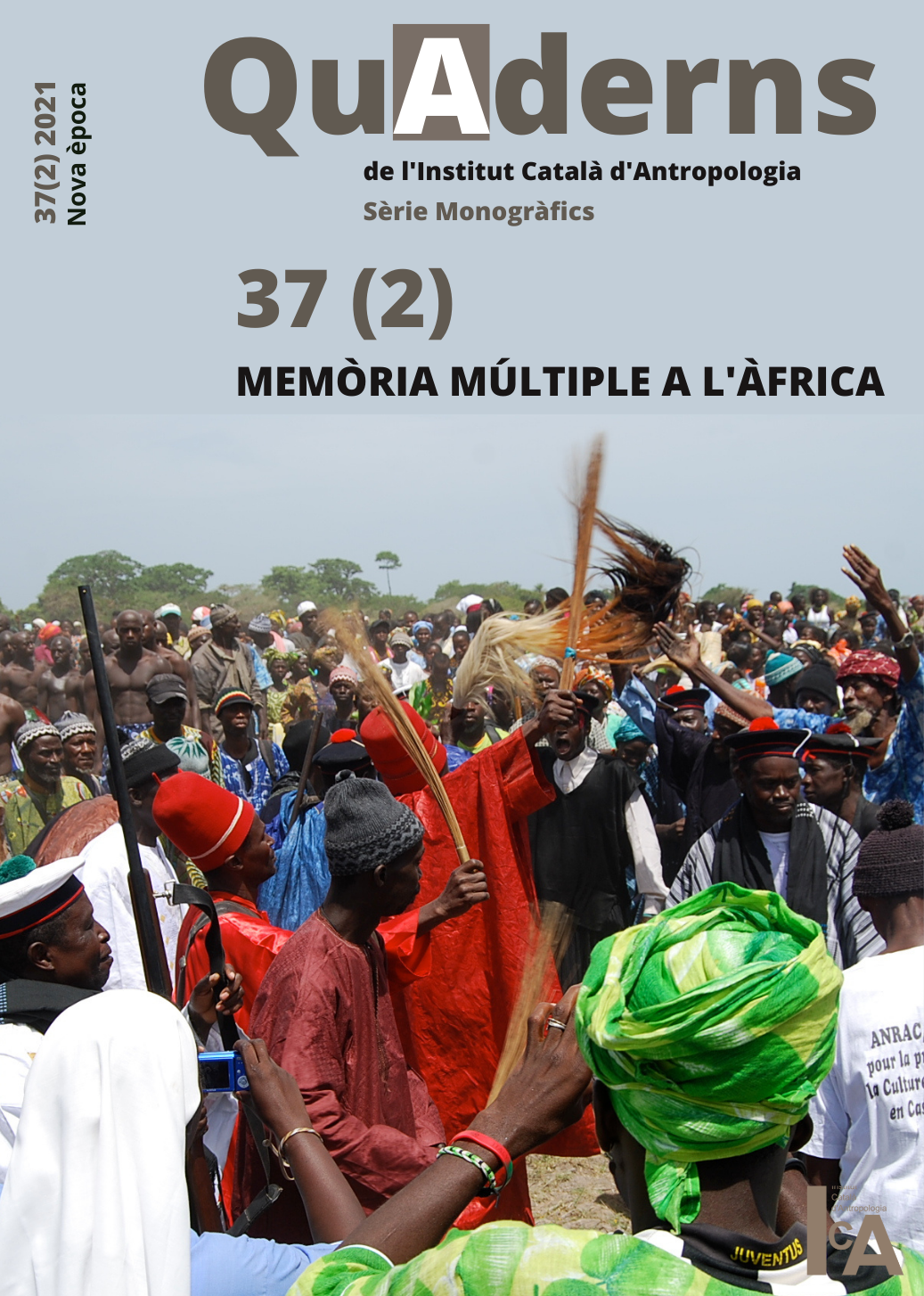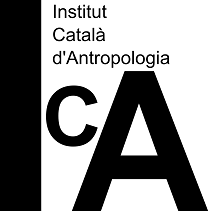The debates groups: group techniques to build the "whats" of a collaborative ethnography
DOI:
https://doi.org/10.56247/qua.375Keywords:
methodology, qualitative research, collaborative ethnography, Stop Evictions, groups debatesAbstract
This article describes and analyzes the design and implementation of a collaborative ethnography experience carried out with the Stop Evictions Granada-15M collective. The purpose of the text is to show how the objectives were collectively constructed in the course of the investigation, through the investigation technique that we call “discussion groups”. To begin with, some notes are provided on the particularities of the research processes within collaborative ethnographies; secondly, a comparative analysis of the discussion groups is presented in relation to other group research techniques, such as discussion groups and focus groups; thirdly, we analyze the potentialities and limitations of the technique created ad hoc in the research; and we end the paper with some reflections on the epistemological place in which we find ourselves with the lived methodological experience.
Downloads
Global Statistics ℹ️
|
856
Views
|
676
Downloads
|
|
1532
Total
|
|
References
Alonso, L. E. (1998). La mirada cualitativa en sociología. Fundamentos.
Álvarez Veinguer, A., Arribas Lozano, A., y Dietz, G. (Eds.). (2020). Investigaciones en movimiento: etnografías colaborativas, feministas y decoloniales. CLACSO. http://biblioteca. clacso.edu.ar/clacso/se/20201216092831/Investigaciones-en-movimiento.pdf
Álvarez Veinguer, A., y Olmos Alcaraz, A. (2020). Desplegando dispositivos de escucha en una etnografía colaborativa. Los grupos de debate como situaciones instituyentes. En A. Álvarez Veinguer, A. Arribas Lozano, y G. Dietz (Eds.), Investigaciones en movimiento: etnografías colaborativas, feministas y decoloniales (pp. 113-143). CLACSO. http://biblioteca.clacso.edu.ar/clacso/se/20201216092831/Investigaciones- en-movimiento.pdf
Álvarez Veinguer, A., y Sebastiani, L. (2020a). Horizontes etnográficos desde experiencias colaborativas e implicadas. Introducción al monográfico Etnografías colaborativas e implicadas. AIBR, Revista de Antropología Iberoamericana, 15(2), 233-246. https:// doi.org/10.11156/aibr.150203 DOI: https://doi.org/10.11156/aibr.150203
Álvarez Veinguer, A., y Sebastiani, L. (2020b). Habitar la investigación en la universidad neoliberal y eurocentrada: la etnografía colaborativa como apuesta por lo común y la subjetivación política. AIBR, Revista de Antropología Iberoamericana, 15(2), 247- 271. https://doi.org/10.11156/aibr.150204 DOI: https://doi.org/10.11156/aibr.150204
Arribas, A. (2014). Lógicas emergentes de acción colectiva y prácticas colaborativas de investigación. Apuntes para una Antropología junto y con los movimientos sociales. Gazeta de Antropología, 30(1), s/p. http://www.gazeta-antropologia.es/?p=4454
Borsani, M. E. (2014). Reconstrucciones metodológicas y/o metodologías a posteriori. Astrolabio, 13, pp. 146-168. https://revistas.unc.edu.ar/index.php/astrolabio/article/ view/9028
Callejo, J. (2001). El grupo de discusión: introducción a una práctica de investigación. Ariel.
Dietz, G., y Álvarez Veinguer, A. (2014). Reflexividad, interpretación y colaboración en etnografía: un ejemplo desde la antropología de la educación. En C. Oehmichen Bazán (Ed.), La etnografía y el trabajo de campo en las ciencias sociales (pp. 55-89). UNAM.
Domínguez, M., y Davila, A. (2008). La Práctica conversacional del grupo de discusión: jóvenes, ciudadanía y nuevos derechos. En A. Gordo López, y A. Serrano Pascual (Coord.), Estrategias y prácticas cualitativas de investigación social (pp. 97-125). Pearson/Prentice Hall.
Edmiston, V. (1944). The group interview. The Journal of Educational Research, 37, 593-601. DOI: https://doi.org/10.1080/00220671.1944.10881287
Estalella, A., y Sánchez Criado, T. (Eds.). (2018). Experimental collaborations. Ethnography through fieldwork devices. Berghahn. DOI: https://doi.org/10.2307/j.ctvw04cwb
Ferrándiz, F. (2011). Etnografías contemporáneas. Anclajes, métodos y claves para el futuro. Anthropos.
García Soto, R. (2021). Los Caminos hacia la Investigación Colaborativa. Experiencias etnográficas junto al movimientos por la lucha de la vivienda en Granada (Tesis doctoral). Universidad de Granada
Greenbaum, T. L. (1998). The Handbook for Focus Group Research. Sage. DOI: https://doi.org/10.4135/9781412986151
Gutiérrez, J. (2008). Dinámica de grupo de discusión. CIS
Haber, A. (2011). Nometodología Payanesa: Notas de Metodología Indisciplinada. Revista Chilena de Antropología, 23, 9-49. https://doi.org/10.5354/0719-1472.2011.15564 DOI: https://doi.org/10.5354/0719-1472.2011.15564
Ibáñez, J. (1993). Perspectivas de la investigación social: el diseño en las tres perspectivas. En J. García Ferrando, J. Ibáñez, y F. Alvira (Comp.), El análisis de la realidad social. Métodos y Técnicas de investigación (pp. 49-83). Alianza Editorial.
Ibáñez, J. (2003). Más allá de la sociología. El grupo de discusión: técnica y crítica. Siglo XXI.
Krueger, R. (1994). Focus Groups. A Practical Guide for Applied Research. SAGE Publications.
Leyva, X., Burguete, A., y Speed, S. (2008). Gobernar (en) la diversidad: experiencias indígenas desde América Latina. Hacia la investigación de co-labor. CIESAS.
Malo, M. (2004). Prólogo. En VV.AA. (Ed.), Nociones Comunes. Experiencias y ensayos entre investigación y militancia (pp. 13-40). Traficantes de Sueños.
Merton, R., y Kendall, P. (1946). The Focused Interview. American Journal of Sociology, 51(6), 541-557. DOI: https://doi.org/10.1086/219886
Montañés, M. (2007). Más allá del debate cuantitativo/cualitativo: la necesidad de aplicar metodologías participativas conversacionales. Política y Sociedad, 44(1), 13-29. http:// revistas.ucm.es/portal/modulos.php?name=Revistas2_Historico&id=POSO&num=POSO070713
Lassiter, L. E. (2005). The Chicago Guide to Collaborative Ethnography. Chicago University Press. DOI: https://doi.org/10.7208/chicago/9780226467016.001.0001
Law, J. (2004). After Methods. Mess in Social Science research. Routledge DOI: https://doi.org/10.4324/9780203481141
Olmos Alcaraz, A., Cota, A.S., Álvarez Veinguer, A., y Sebastiani, L. (2018). Etnografía con los movimientos de lucha por el derecho a la vivienda en el sur de Europa: retos metodológicos en la investigación colaborativa para la acción social. Universitas Humanística, 86, 139-166. https://doi.org/10.11144/javeriana.uh86.emld. DOI: https://doi.org/10.11144/Javeriana.uh86.emld
Ortí, A. (1989). La apertura y el enfoque cualitativo o estructural: la entrevista abierta y la discusión de grupo. En J. García Ferrando, J. Ibáñez, y F. Alvira (Coord.), El análisis de la realidad social. Métodos y técnicas de investigación (pp. 153-185). Alianza.
Porto, L., y Ruiz, J.A. (2014). Los grupos de discusión. En K. Saenz, y G. Tames (Coords.),
Métodos y Técnicas Cualitativas y Cuantitativas Aplicables a la Investigación en Ciencias
Sociales (pp. 253-273). Tirant lo Blanch Humanidades.
Rappaport, J. (2008). Beyond Participant Observation: Collaborative Ethnography as Theoretical Innovation. Collaborative Anthropologies, 1,1-31. https://doi.org/10.1353/cla.0.0014 DOI: https://doi.org/10.1353/cla.0.0014
Santos, B. de S. (2010). Para descolonizar Occidente. Más allá del pensamiento abismal. CLACSO.
Santos, B. de S. (2018). The End of the Cognitive Empire. The Coming of Age of Epistemologies of the South. Duke University Press. DOI: https://doi.org/10.1215/9781478002000
Vasco, L. (2002). Entre Selva y paramo. Viviendo y pensando la lucha india. Instituto Colombiano de Antropología e Historia.
Velasco, H., y Díaz de Rada, A. (2006). La lógica de la investigación etnográfica. Un modelo de trabajo para etnógrafos de Escuela. Trotta.
Villasante, T. (2006). Lo comunitario y sus saltos creativos. Cuadernos de Trabajo Social, 19, 225-254. https://revistas.ucm.es/index.php/CUTS/article/view/CUTS0606110225A
Downloads
Published
How to Cite
Issue
Section
License
Distributed under the terms of the Creative Commons Attribution 4.0 International Use and Distribution License (CC BY-NC-SA 4.0)




